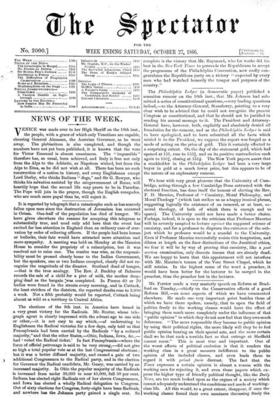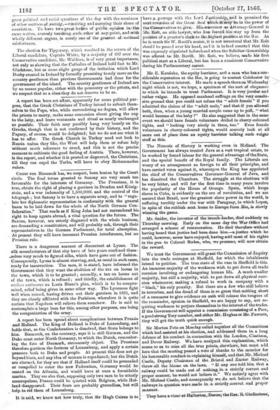Mr. Forster made a very masterly speech on Reform at
Brad- ford on Tuesday,—chiefly on the Conservative effects of a good Reform Bill, —on some aspects of which we have commented elsewhere. He made one very important point besides those of which we have there spoken, namely, that to open the field of politics freely to the working classes would have the effect of bringing them much more completely under the influence of that " public opinion" to which they do not now feel that they owe much deference. " The more responsible they become to public opinion by using their political rights, the more likely will they be to feel public opinion bearing on their special acts, and the more certain shall we be that such a terrible fact as that outrage at Sheffield cannot recur." This is most true and important. One of the worst effects of political exclusion is that it renders the working class in a great measure indifferent to the public opinion of the included classes, and even leads them to regard it with prima facie distrust. The fact that the Times expresses a certain opinion is almost a reason with the working men for rejecting it, and even those papers which ex- press the higher type of friendly political thought, like the Daily News, are too much looked upon as the organs of a society which cannot adequately understand the conditions and needs of working- class life. All this would, to a great extent, disappear, if once the working classes found their own nominees discussing freely the
gra it political and social questions of the day with the nominees of other sections pf .society,—rieeiving and parrying their share of conviction. To have twa great bodies of public: °pita= biz Ilia same nation, scarcely toneleiog; each other at anyepoint, and with wholly different organs, is surely one of the grenbeat of national misfortunes.



































